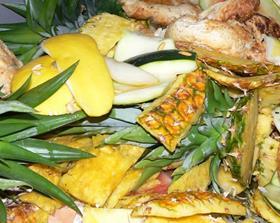
An explosion in category range is a driving factor behind food waste in US retailers, according to a talk at Bayer CropScience’s Horticulture Symposium in Germany.
Bruce Axtman, president of fresh produce consultancy Nielsen Perishables Group, said increasing product numbers are offsetting the sophisticated cold chain capabilities in the US.
Axtman said retailers are handling more products from the same category than ever before.
He said: “New varieties are a big driver of waste, especially in prepared salads. If you go back just 10 or 15 years ago, the average total variety in a US fresh produce department was 150 or 200 products. Now the average supermarket might have 600, 800 or even up to 1,000 fresh products on display. Some categories have exploded in variety.”
He added: “Despite the fact the product quality is very high and the packaging is very high quality, the sheer number of products is driving waste figures.
“Unfortunately, although the US is a very developed country with a lot of wealth we are number one for food waste, according to some of the numbers.”
Axtman said food waste primarily occurs at breaks in the cold chain, such as when individual stores don’t have enough cold space. He cited improper ordering or unskilled labour as other factors behind the US retail food waste figures.
He said increasing numbers of value-added or prepared products have also contributed to food waste as these items have to be consumed in a short space of time.
“The overall industry estimate is that we have 5 to 7 per cent loss. My personal opinion is that it’s probably almost double that. That’s one of our challenges – our industry is underestimating the amount of product loss that we have in the supply chain,” he said.
Axtman said that the US retail sector is improving customer analytics and category understanding to tackle its food waste issue.
The Horticulture Symposium also heard from industry speakers from across the world on different perspectives of waste in the supply chain.
Leon Terry, from Cranfield University in the UK, warned that media figures on food waste should be looked at alongside scientific methods. Jorge Fonseca of the Food and Agriculture Organisation of the United Nations (FAO) said that social and cultural circumstances should be considered as part of food waste iniatives.
The conference took place yesterday, 21 November, in Bonn, Germany.



